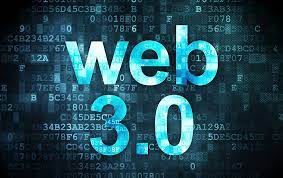Web 3.0:

The concept of Web3, also called Web 3.0, used to describe a potential next phase of the internet, created quite a buzz in 2021.
- World Wide Web, which is also known as a Web, is a collection of websites or web pages stored in web servers and connected to local computers through the internet.
- These websites contain text pages, digital images, audios, videos, etc. Users can access the content of these sites from any part of the world over the internet using their devices such as computers, laptops, cell phones, etc.
- Web 3.0 is a decentralized internet to be run on blockchain technology, which would be different from the versions in use, Web 1.0 and Web 2.0.
- In Web3, users will have ownership stakes in platforms and applications unlike now where tech giants control the platforms.
- Gavin Wood, founder of Ethereum, a block chain technology company, used the term Web3 first in 2014 and in the past few years many others have added to the idea of Web3.
Web 1.0:
- Web 1.0 is the world wide web or the internet that was invented in 1989. It became popular from 1993. It lasted until 1999.
- The internet in the Web 1.0 days was mostly static web pages where users would go to a website and then read and interact with the static information.
- Even though there were e-commerce websites in the initial days it was still a closed environment and the users themselves could not create any content or post reviews on the internet.
Web 2.0:
- Web 2.0 started in some form in the late 1990s itself though 2004 was when most of its features were fully available. It is still the age of Web 2.0 now.
- The differentiating characteristic of Web 2.0 compared to Web 1.0 is that users can create content.
- They can interact and contribute in the form of comments, registering likes, sharing and uploading their photos or videos and perform other such activities.
- Primarily, a social media kind of interaction is the differentiating trait of Web 2.0.
- In Web 2.0, most of the data in the internet and the internet traffic are owned or handled by very few companies ex. Google.
- This has created issues related to data privacy, data security and abuse of such data.
- There is a sense of disappointment that the original purpose of the internet has been distorted.




